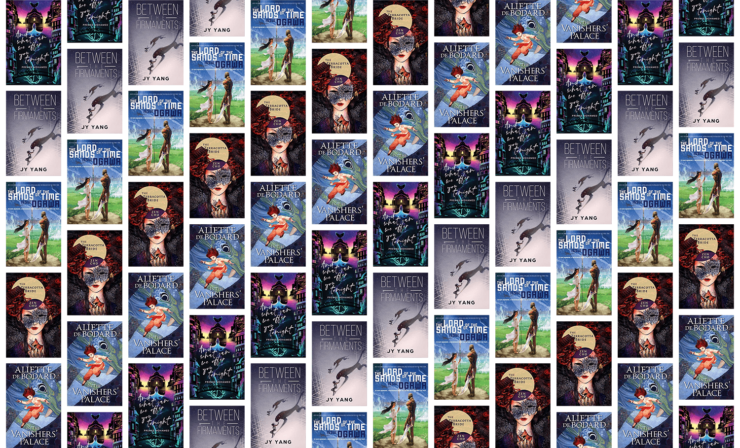In the comments on a previous article on this site, Nancy Lebovitz said, “When I reread Three Hearts and Three Lions, I was amazed at how concise it was. It didn’t seem rushed, but each chapter would have been puffed up into a novel by a lot of contemporary authors.”
Olden-time SF authors, limited as they were to pen and paper, typewriters, and other now archaic methods of production, and trying to sell to markets uninterested in purchasing lengthy works, often delivered works that seem startlingly concise and to the point by modern standards. There’s nothing like not having a choice to urge people to make the right choices.
However, even in this age of word processing software and publisher enthusiasm for meandering series of enormous story-fragments, there are authors who deliver short, effective books that contain within them all of the necessary narrative elements. They even include that most elusive ingredient—an actual ending. Consider these five comparatively recent examples of books that are wonderfully short and to the point.
Wait, you ask, is this just going to be a pitch for Tordotcom novellas? No, because I assume if you’re here, you know about Tordotcom novellas, so there is no need for me to draw your attention to Tordotcom novellas. In fact, I am so affronted by your suggestion that I might insert gratuitous references to Tordotcom novellas that I am going to take a five-minute break to enjoy this bowl of delicious Maggi-brand soup…
The Lord of the Sands of Time by Issui Ogawa (2006)
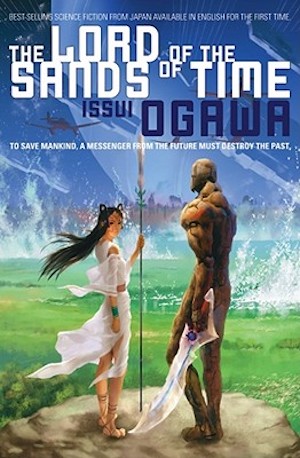
What begins as standard fantasy fare—Lady Miyo encounters a demonic mononoke and survives thanks to the timely intervention of a warrior in blackened, cracked armour, wielding a talking sword—quickly transforms into science fiction once we’re given further context. The mononoke are aliens from the distant future, the warrior is an android (likewise from the future), and Lady Miyo’s native Yayoi era is but one battleground in the time war between humans and aliens.
Lord’s US edition is a scant 196 pages long, into which a startling quantity of plot has been poured. To quote reviewer Sean O’Hara:
The story contains the entire plot of Turtledove’s World War series compressed to five pages, and Guns of the South as a one paragraph flashback.
Which leaves 190 pages of similar plot density in which the author can cavort, which he does masterfully.
The Terracotta Bride by Zen Cho (2011)
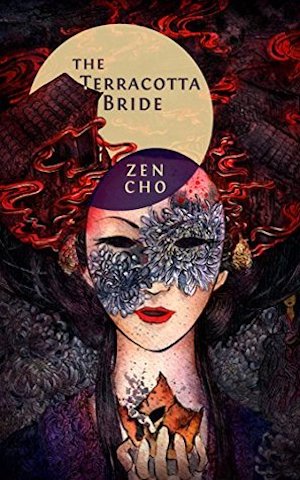
A certain Danish prince wondered whether death might end “the heart-ache and the thousand natural shocks that flesh is heir to.” Siew Tsin knows for a fact that it does not. Struck and killed by an automobile, without money to ease her way in the afterlife, she is sold by her worthless uncle to foolish but wealthy Junsheng. An afterlife as Junsheng’s second wife is better than being tortured by demons but still not great. Particularly when Junsheng’s eye falls on another—the artificial, immutable Yonghua.
Technically this is a novelette but it was published as a standalone eBook in 2016. While the situation is manifestly a fantasy, the treatment is very SFnal, yet further proof the genres can overlap and bleed into each other. The narrative explores the creation of a beautiful android, Yonghua, in some detail, without ever losing focus on Siew Tsin’s predicament.
In the Vanishers’ Palace by Aliette de Bodard (2018)
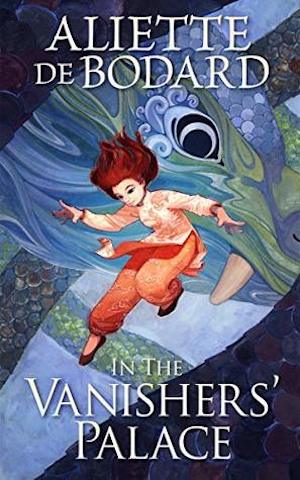
The Vanishers played with the world until it broke, then abandoned the poisoned world and their former slaves to seek pastures green. Those who serve no useful role—a category into which scholar Yên is afraid she falls—should expect short unpleasant lives. Yên fears that she will be fed to an artifact in the Plague Grove. She escapes that fate, but only by being sold to Vu Côn, a dragon. As dragon food? Fortunately for Yên, no. Vu Côn needs a tutor for her children. This is less immediately fatal than becoming a meal, but tutoring a dragon’s children isn’t exactly safe.
This tale reminded me of the European folktale, “Beauty and the Beast.” De Bodard’s retelling is set in a wholly original world of the author’s creation and delivered in enchanting prose.
Between the Firmaments by Neon Yang (2018)
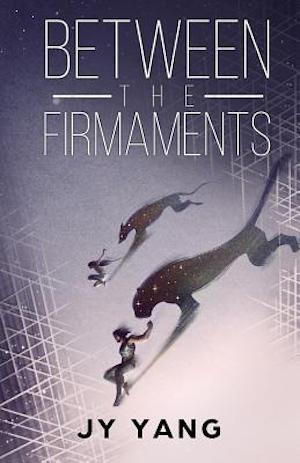
Armed with sunmetal, the invading Blasphemers conquered Bariegh’s magic-rich world. The lucky were enslaved. The unlucky were consumed as single-use power sources. Bariegh of the Jungle conceals his godly nature from the Blasphemers lest he be drained and discarded. Bariegh’s lover Sunyol is as divine as Bariegh. Sunyol is from another realm and lacks Bariegh’s experience-driven caution. Faced with injustice, Sunyol will act. Faced with rebellion, the Blasphemers will do their best to crush the rebel and anyone standing too close to Sunyol…like Bariegh and those dear to him.
Fans of Kipling and Piper might expect a glowing tribute to Blasphemer virtues. Yang instead gives us a rather negative view of imperialism, told in adroit prose. It’s a very effective tale. It’s a shame that the paper edition of the work seems to be currently out of print.
And What Can We Offer You Tonight by Premee Mohamed (2021)
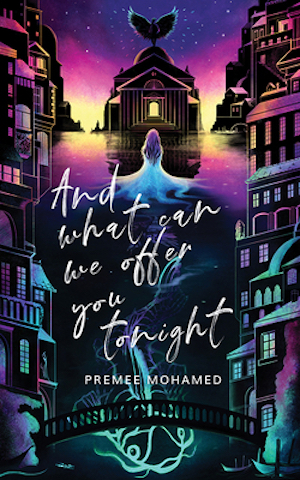
There are the rich and the poor. The rich enjoy their wealth; the poor suffer and die to create it. Or so it is in this obviously fictitious setting. Social tranquility is disrupted when magic-wielding friends resurrect the late courtesan Winsome Winfield. The reanimated Winsome is angry at having been murdered by a client. When she was a living courtesan, there was nothing she could do to repay affronts. Now that she is a dread revenant, there are so very many options for expressing her displeasure. Many of them are quite violent.
But greatest horror in this book is not some supernatural menace; it is the fact that people must live in a grotesquely inequitable social-economic system. Not that there isn’t a fantastic angle to all this…the one percent in this setting do get their comeuppance.
***
No doubt you have your own favourite short and sweet works—feel free to mention them in comments below.
In the words of Wikipedia editor TexasAndroid, prolific book reviewer and perennial Darwin Award nominee James Davis Nicoll is of “questionable notability.” His work has appeared in Publishers Weekly and Romantic Times as well as on his own websites, James Nicoll Reviews and the Aurora finalist Young People Read Old SFF (where he is assisted by editor Karen Lofstrom and web person Adrienne L. Travis). He is a four-time finalist for the Best Fan Writer Hugo Award, is eligible to be nominated again this year, and is surprisingly flammable.










